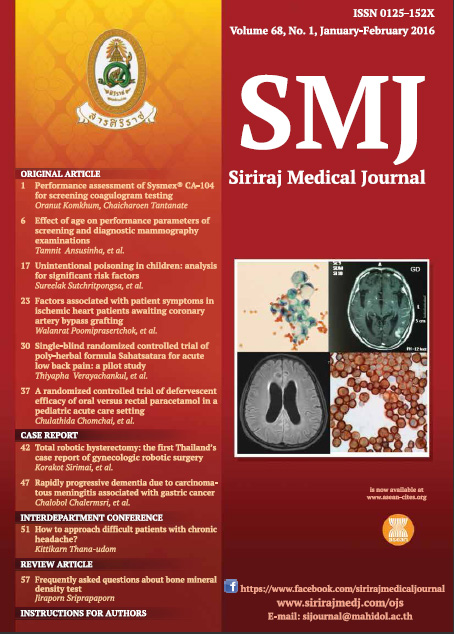A Randomized Controlled Trial of Defervescent Efficacy of Oral versus Rectal Paracetamol in a Pediatric Acute Care Setting
Abstract
Objective: To assess the comparative efficacy of oral versus rectal paracetamol in reducing fever in a pediatric acute care setting.
Methods: 200 children with body temperature >39ºc were randomized to receive oral or rectal paracetamol, together with tepid sponging. Their body temperatures were measured at enrollment, after fever reduction protocol had been completed and at 30-minute and 60-minute intervals. General linear model was used to assess the effect of time and type of medication on fever reduction.
Results: Mean log [temperature] differed significantly between time intervals (F(1.275, 248.576) = 32.766, p<0.001) and the test of between subject effects showed that there was a significant effect of antipyretic types on mean body temperature of children at different time intervals (F(1, 995) = 4.040, p<0.05).
Conclusion: Rectal paracetamol was shown to be more effective overall at lowering body temperature, especially at the termination of fever reduction protocol, and at 60 minutes.
Keywords: Paracetamol, fever, rectal suppository, defervescence
Downloads
Published
How to Cite
Issue
Section
License
Authors who publish with this journal agree to the following conditions:
Copyright Transfer
In submitting a manuscript, the authors acknowledge that the work will become the copyrighted property of Siriraj Medical Journal upon publication.
License
Articles are licensed under a Creative Commons Attribution-NonCommercial-NoDerivatives 4.0 International License (CC BY-NC-ND 4.0). This license allows for the sharing of the work for non-commercial purposes with proper attribution to the authors and the journal. However, it does not permit modifications or the creation of derivative works.
Sharing and Access
Authors are encouraged to share their article on their personal or institutional websites and through other non-commercial platforms. Doing so can increase readership and citations.










